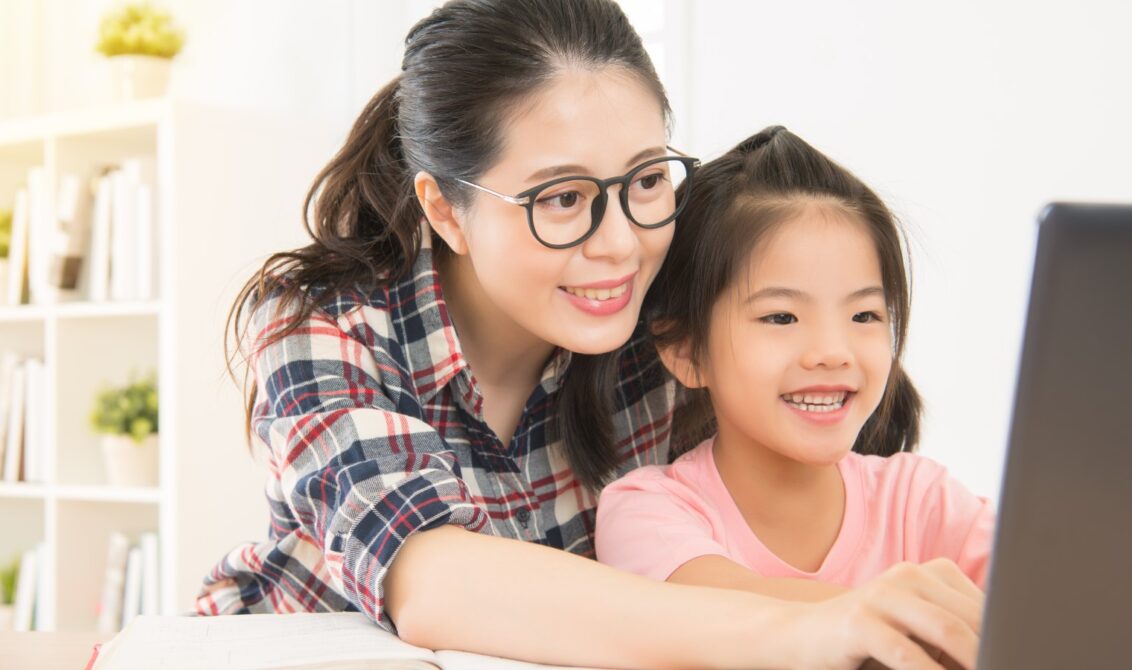
In recent weeks parents across the globe have had a new type of co-worker: their children. The coronavirus crisis has led to the world’s largest ever home-schooling experiment.
UNESCO estimates that 91% of the world’s students, or nearly 1.6bn people, have been hit by nationwide school closures in 188 countries.
This has forced parents to assume childcare and schooling responsibilities. Many will have the difficult task of balancing this with their job. Parents face uncertainty over their finances and the economic crisis, not to mention the health of family members and food security.
“My work-life balance has gone out the window,” says Dana Watts, a single mother of three teens. “I don’t remember the last time I was so overwhelmed with responsibility.”
Alongside doing her job from home (she is director of research and development at International Schools Services), she feels pressure to make three decent meals a day, do housework and oversee her children’s education.
1. Keep them occupied
Downtime is important, but so is keeping occupied — boredom can be stressful.
Parents feel that schools should be the first point of call: many have built online learning environments or can signpost parents to free online resources. But many teachers are stretched and may take a while to respond to queries.
Families often try to limit screen time and there is stigma around it, but children can find educational value in smartphone apps, e-books, videos, podcasts and documentaries. It’s just about finding appropriate things for them to do.
Carol Vorderman, for example, is offering free online maths classes to children while schools are shut. Fitness coach Joe Wicks has been keeping the UK fit with live online PE sessions for school children in lockdown.
The National Literacy Trust has launched an online zone where parents can find ideas for and guidance on activities. It includes reading and writing tasks, videos and competitions.
The internet is especially helpful for when parents have to teach something they can’t remember or never knew in the first place. “I was never taught phonics and trying to understand that and how it’s taught is a challenge,” says Claire Goodwin-Fee, a psychotherapist with two children.
She got tips for this on YouTube (Crash Course, National Geographic and SoulPancake are brilliant educational channels), but teenagers can help too. Children (and parents) can set up social media groups to support each other.
2. Avoid comparisons
Seeing what friends and colleagues are doing may leave parents feeling inadequate. “Don’t compare yourselves to anyone else. We’re all different. Do what’s best for your child,” says Tom Rose, a primary school teacher from London who runs a podcast with Jack Pannett on improving children’s wellbeing.
It’s a good idea to agree on a home schedule together as a family to provide structure in an otherwise uncertain world — some parents take shifts minding the kids.
A routine doesn’t necessarily mean following your school’s timetable. “People try to make home into a mini school, but you can’t,” says Goodwin-Fee.
She gets up ahead of her kids to blitz through emails. When they’re up, she makes them breakfast and sets out the day’s plan. That’s followed by an exercise session to burn off energy before settling the kids into an educational task while she gets on with work in the afternoon.
Most people find a lack of control difficult and this can impact negatively on their mental health, says Zubeida Dasgupta, a British educational psychologist.
3. Make time for yourself
Parents need to carve out time for themselves — Dasgupta recommends identifying the source of any anxiety, speaking about it, focusing on the things you can control and doing activities that you enjoy, where possible.
“You need to be looking after yourself before you can look after your children,” she says. “The number one priority should be mental and physical health.”
Her husband is a frontline National Health Service worker. So the bulk of home-schooling their three children (aged eight, 12 and 13) has fallen to her. Dasgupta’s freelance work has been reduced amid the economic crisis.
But she still works in the evenings and at weekends. “I’ve given up trying to get any work done when the children are not settled — just before lunch and dinner when they’re hangry. It just makes me frustrated.”
4. Favour curiosity
Some parents have ditched the standard curriculum altogether to work. They still have to pay the bills, even as the global economy crashes.
“I have totally neglected my children and their education,” says Jeremy Weinstein, an education consultant in Australia whose children’s school closed abruptly because a teacher tested positive for Covid-19. “At this stage, if your kids are learning anything, you’re way ahead of the game.”
He sees the crisis as a chance for children to explore their curiosity. Some prefer to learn through creative play – messy craft, physical activity, music or drama. Even chores like cooking and washing are good life lessons involving literacy, numeracy and science — and will take a load off your shoulders.
“Take learning out of the classroom and into the real world,” says Weinstein. Children are curious about the crisis, he says, so tap into that by setting tasks based on current events, like writing a short story about the pandemic.
Some parents try to involve older children in their work: Goodwin-Fee had to file a tax return recently and took the opportunity to give her son a financial education.
Children can also educate parents: Dasgupta’s taught her how to do comic strip art.
They can also teach each other: Dasgupta’s daughter does digital colouring in with her friends. “It’s lovely hearing the giggling,” she says.
5. Prioritise health and wellbeing
Technology can foster virtual connections amid concerns that social isolation could hit the development of young children’s social skills. For children who find school a source of anxiety, being at home may provide temporary relief. If well supported, they could develop resilience and cope better with adversity in the future.
Not all children love school, but free from peer pressure and exams, “all children have the chance to love learning”, says Rose.
However, prolonged social isolation could have a negative impact. “A social connection is an innate human need,” says Dasgupta. “Playing with other children is part of their social, emotional and cognitive development.”
“I’ve never heard my daughter say she couldn’t wait to go to school until this week,” says Watts at ISS, which manages international schools.
Goodwin-Fee is more concerned about anxiety hitting children’s mental health. “The media use words like ‘battle’ and ‘war’ — defensive, gung-ho language that may prompt an emotional response in people who are already struggling with stress.”
Exercise is important for maintain health and wellbeing. NHS guidance is for two types of physical activity each week in order for children to stay healthy – develop movement skills, muscles and bones.
But Rose advises 45-minute bursts of learning followed by 15-minute movement breaks to “re-energise the brain” in the morning and stay focused. Parents should get stuck in too, he adds: “Take it from teachers who have learnt the hard way: burnout is something to avoid. You cannot pour from an empty cup.”
6. Be kind to yourself
Parents need to let themselves off the hook. “My biggest recommendation is be kind to yourself,” says Natalie Costa, a coach for children and parents. “There’s no such thing as perfection. I’ve seen people ripping themselves to shreds over this, but we all need a period of adjustment.”
The National Literacy Trust’s director of school programmes, Fiona Evans, agrees. “You should consider the day a real success if everyone gets to read, write, chat, play, create, move, laugh and get a bit of fresh air,” she says.
Above all, Goodwin-Fee urges parents to see this as an opportunity for bonding. “We are normally away from our kids all day at work. Hopefully we can look back at this time and say it was just amazing to connect with our children again.”

